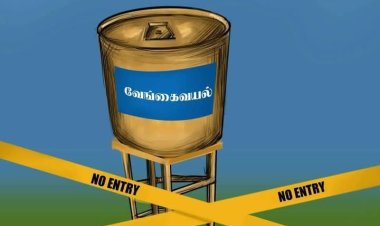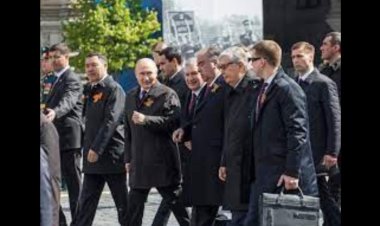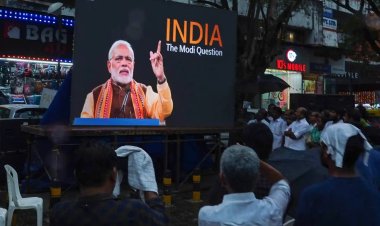A non-uniform approach to the uniform civil code
Hindustan Times

Recently, Nagaland chief minister Neiphiu Rio said that Union home minister Amit Shah assured a 12-member state government delegation that the Centre was considering the exemption of Christians and some pockets of tribal areas from the scope of the proposed Uniform Civil Code (UCC), for which the Law Commission had sought responses by mid-July.
PREMIUM Article 371 provides “special provisions” for 11 states including six northeastern states.(Shutterstock)
The delegation had met Shah to apprise him of the apprehensions surrounding the proposal for a UCC and the serious repercussions it would have, especially in the context of Nagaland which is a Christian state, and where the Article 371(A) of the Constitution protects religious practices from all Central laws.
Article 371 provides “special provisions” for 11 states including six northeastern states. The sub-section of the article from A to H provides protection for customary laws and social practices and prohibits the Parliament from enacting any law that can impact these customs, especially in states such as Nagaland, Mizoram, Manipur and Arunachal Pradesh.
Last week too, Mizoram chief minister Zoramthanga wrote to the Law Commission that the UCC was against the interests of ethnic minorities and was in conflict with the religious and social practices of Mizos and their customary laws which are protected by the Art 371(G) of the Constitution. Meghalaya chief minister Conrad Sangama has also expressed his apprehension over the UCC citing specific tribal customs in the state protected by the Constitution.
Except for Manipur, where there has not been much discussion on the UCC because of the ethnic strife that has claimed at least 122 lives since May 3, most northeastern states have had discussions on the proposed law.
Assam
Unlike other northeastern states, Assam has not seen protests against the proposal of implementing a UCC as yet. The state has three autonomous councils and all of them have said that they have no issues with the UCC.
Assam chief minister Himanta Biswa Sarma said in May that they were bringing state laws to ban polygamy. “This proposed law to ban polygamy will be a partial implementation of UCC. Complete implementation of UCC will give several other rights to women,” he said. On May 14, while attending Hindu Ekta Yatra in Telangana, Sarma, who is with the Bharatiya Janata Party (BJP), said that the days of marrying multiple women are going to end.
“Some people in India thought they could marry four women. But, I say you will not be able to do four marriages. Those days are going to come to an end and it is not far. Uniform Civil Code (UCC) is going to come in India and the time has also come to make India a true secular nation," Sarma said.
In India, while Muslim personal laws permit polygyny, data from the National Family Health Survey over the past three cycles have shown that the practice occurs across communities: While it was prevalent among 1.9% of Muslims, it was also prevalent among 1.3% of Hindus, and 1.6% among other religious groups. Overall, the practice was on a decline.
The three autonomous councils, Bodoland Territorial Council, Dima Hasao Autonomous District Council and Karbi Anglong Autonomous District Council have said that they are yet to take any decision on the UCC.
Phukan Basumatary from Bodoland said that the UCC was a new term for them and they were yet to discuss it. "Our seniors might be aware of this. It is a relevant issue, they'll conduct a meeting to discuss it," he said.
Debolal Garlosa from Dima Hasao Autonomous District Council said that they are not aware of the concept and it hasn't been discussed in the council yet.
Similarly, the Karbi Anglong Autonomous District Council denied taking any decision on the UCC. “Meghalaya has different local laws which will be abolished if the UCC is applied. We have different local laws, we are yet to take a decision on supporting it,” a member said.
Manipuris form one of the largest ethnic groups in Assam in terms of population and comprise two major communities, Meiteis and Bishnupriyas.
Okram Lakhi Kanta Singha, a Meitei said, “Manipuris are mostly Hindus but some groups follow other religions too. We support the UCC because we believe in the ‘One Nation One Law’ policy. UCC won't contradict any of the ethnic laws of Manipuri society."
Political parties like All India United Democratic Front (AIUDF) and Congress refused to comment on this matter at present.
Arunachal Pradesh
A Bharatiya Janata Party-ruled state, Arunachal Pradesh has 26 major tribes and more than 100 sub-tribes. Unlike the other Northeastern states including Mizoram, Nagaland and Meghalaya, there has been no visible protest here against the UCC.
According to Article 371 of the Constitution, there are special provisions for 12 states: Maharashtra, Andhra Pradesh, Gujarat, Telangana, Sikkim, Mizoram, Arunachal Pradesh, Assam, Nagaland, Goa, Manipur and Karnataka. Article 371 (H) of the Constitution gives special powers to the Governor over law and order in the state of Arunachal Pradesh.
Chief minister Pema Khandu last year said that they sought an amendment of Article 371 (H) to place it at par with special provisions meant for Nagaland enshrined in Article 371 (A) of the Constitution. The government sought provisions to protect the religious and social practices of the tribes of the state, customary law and procedure of the state’s tribes, and administration of civil and criminal justice among other things. A resolution to amend the article was also passed in the state assembly in August 2020.
The government is not averse to the implementation of UCC as long as some demands of tribal groups are kept in mind, however, they are yet to release any specific statement on this.
The president of the Arunachal Pradesh Literary Society (APLS), Yeshe Dorjee Thongchi recently said that the UCC will benefit the tribal people of Arunachal Pradesh as a whole.
"We are heading towards a new era of social order and UCC will do away with many evil social norms of various tribes. Several customs in tribal groups have become outdated, he said.
According to him, some people still married many wives and paid high bride prices to show their social status. “A uniform law will abolish these,” said the retired IAS officer.
Nagaland
Various civil society organisations in Nagaland including tribal, church and student bodies have expressed stiff opposition against the implementation of the UCC in the country on shared points of concern that it would violate the Constitution of India, infringe upon the fundamental rights and the special constitutional provisions for the state of Nagaland under Article 371A.
The article provides that no act of Parliament in matters pertaining to religious or social practices of the Nagas, Naga customary law and procedure, administration of civil and criminal justice involving decisions according to Naga customary law, and ownership and transfer of land and its resources shall apply to the state of Nagaland unless the Legislative Assembly of Nagaland by a resolution so decides.
“This constitutional safeguard is essential in respecting the distinctiveness and autonomy of the Nagas, acknowledging their historical journey, and upholding their fundamental rights,” the Naga Hoho, an influential civil society organization contended in a statement on July 4.
“We firmly believe that any attempt to enforce a one-size-fits-all approach would undermine the constitutional provisions, unique history, and indigenous culture and identity of the Nagas, as well as the principles of unity in diversity in the country,” it stated.
The Nagaland Tribes Council (NTC) also voiced similar sentiments: the UCC will dilute the provisions of Article 371A.
“Codifying the social-cultural and the religious practices by way of negating the deep-rooted values and norms of the people, especially that of the tribals and the religious minority, will amount to a violation of the fundamental rights of the marginalised minority in the country,” said Rev. Dr. Zelhou Keyho, general secretary of the influential Nagaland Baptist Church Council.
He expressed concern that once the UCC is imposed, the provisions in the Constitution guaranteeing freedom of religion and freedom to practise one’s religion of choice, which allows religious communities to follow their respective personal laws, will be affected. “It must be noted that religion and faith are personal and the practices cannot be codified. In a secular nation, the law cannot prescribe on religious matters,” Keyho added.
UCC was in violation of Article 25 and Article 29 of the Constitution, the Naga Students Federation (NSF) said and added that in areas where existing customary laws have primacy over federal laws with respect to personal issues like marriage, divorce, adoption, land ownership etc. there was no space for the operation of UCC. “The constitutional safeguards of our customs and religious practices cannot be usurped under the pretext of implementing a uniform law,” said Kegwayhun Tep, president of NSF.
Chief minister Neiphiu Rio’s Nationalist Democratic Progressive Party (NDPP), the chief BJP ally in Nagaland, and the Naga People’s Front (NPF) have also voiced out their reservations that UCC will have a negative impact on the freedom and rights of the minority communities and the tribal people of the country.
“The NDPP as a political party whose very ideology is to protect the rights, customs and traditions of our people is opposed to the implementation of the UCC,” the party said in a statement, adding that as the process of implementing the UCC is at its nascent stage, the Centre and the members of the 22nd Law Commission may reconsider the matter and let the decision of the 21st Law Commission remain unchanged.
“The NDPP also impresses upon the Government of Nagaland (GoN) that as and when the opinion of the GoN is sought, that we do not waiver from our commitment to the Naga people, but stand steadfast to protect and safeguard our identity, our customs, traditions and our unique history,” the party asserted.
Meanwhile, CM Rio led a 12-member cabinet delegation from Nagaland met Union Home Minister Amit Shah in Delhi on July 5. State government spokesperson and minister KG Kenye in a statement on Thursday said the Union Home Minister had assured the Nagaland delegation that the Centre is “actively considering for exemption of Christians and some tribal areas from the purview of the 22nd Law Commission's exercise.”
Besides UCC, other major issues concerning the state including the ongoing Naga peace process and the Centre’s proposed autonomous council for six eastern districts of Nagaland were also stated to have been discussed.
Meghalaya
Chief minister Conrad K Sangma stated last week, “India is a diverse nation, and diversity is our strength.” His party, the National People’s Party (NPP), feels that the UCC “goes against the actual idea of India itself,” he further said.
Sangma, who is an NDA ally, said on July 4, “We have to see the actual content of the Bill and then we can comment on what it is. For example, whether the Bill says that the Scheduled Tribes and Scheduled Castes in certain areas or the North East will be exempted from this; whether societies following matrilineal systems will be exempted,” Sangma said.
On the other hand, the Meghalaya Democratic Alliance II government coalition partner, United Democratic Party (UDP) which boasts of being the second largest party in the Assembly, is yet to take a stand on the UCC.
UDP president Metbah Lyngdoh observed: “You have to look at the customary lines, religious lines. So many factors are here, the Hindus, Christians, Muslims – which one to adopt is very confusing. It is extraordinarily complex. It needs lots of thorough and detailed discussion.”
The opposition All India Trinamool Congress (AITC) is also against the UCC being implemented as according to it, the draft of the bill has not even seen the light of day yet. Meghalaya AITC president Charles Pyngrope said that the matter requires detailed discussions on numerous aspects, and one can’t be expected to simply follow what is implemented.
“Recently, a senior BJP leader had stated in a public forum that the UCC will not be implemented in the North East, so how can you have a uniform civil code in that case? Uniform means for one and all,” Pyngrope said adding, “PM Modi in front of US President Joe Biden told the world that India is a great democracy with over 2500 political parties in existence and citizens practising various religions freely. I want to know how the Uniform Civil Code will deal with this.”
Traditional institutions in the state, consisting of chieftains and headmen which are primarily administered by the Khasi Hills Autonomous District Council (KHADC) on June 24 passed a resolution to urge the Union government to not implement the UCC within the Sixth Schedule areas.
The Sixth Schedule of the Constitution protects the interests of indigenous people. “We are unique in the sense that we have a rich cultural tradition and practices in terms of land ownership, having traditional heads that look after the welfare of the community, we also follow a matrilineal system, we also need to protect our language,” the KHADC chief executive member (CEM) Pyniaid Sing Syiem stated.
The Khasi Students’ Union (KSU) feels it is premature to remark on the UCC as the draft of the bill is not yet in the public domain, but stresses that it will not compromise on its principle of safeguarding the indigenous people’s interests.
Speaking to HT over the phone, KSU general secretary Donald V Thabah said, “As understood, the UCC will deal with the process of marriage, divorce, inheritance, adoption, and maintenance. Thus, the UCC will supersede other Acts like Personal Laws including the Christian Marriage Act. It might also affect the unique customary laws and practices of the various NE tribes.”
The Federation of Khasi Jaiñtia and Garo People (FKJGP) comprising members from all the three principal tribes of Meghalaya are unequivocally against the implementation of the UCC in the whole country.
Another pressure group, the Hynñiewtrep Youth Council (HYC) on July 4, shot off a letter to the Member Secretary of the 22nd Law Commission reminding it that Meghalaya became an Indian territory after merging with the Indian Dominion through the signing of the Instrument of Accession and Annexed Agreement (IOA & AA).
As per the IOA & AA, the Indian government has guaranteed to protect and preserve the unique customs and traditions of the Khasi-Jaintia/Hynñiewtrep people within the territory of India. “Hence, it is duty bound on the part of the Government of India, the Government of Meghalaya and the Autonomous District Councils to continue to protect and preserve the unique traditions and customs of the Khasi-Jaintia/Hynñiewtrep people as guaranteed in the IOA & AA,” HYC president Robertjune Kharjahrin wrote in the communique.
“The underlying threat, which is obvious, is that this will bring closer to fruition the right-wing ideology of one nation, one religion, one language and one custom, destroying the hailed diversity of this country and bringing further suspicion, division and friction among the communities,” said former North Eastern Hill University (NEHU) Pro VC, Prof Eugene Thomas. “Further, even if the tribals of the Northeast are exempted from this Civil Code, it does not solve the larger issues facing the rest of the country’s communities. And what guarantee is there that tomorrow it will not be extended to these tribals?”
Tripura
Royal scion and Tipra Motha party chief Pradyot Kishore Debbarma agreed to comment on the issue but only after studying a draft of the UCC — none exists as yet — and said that customary law of the indigenous people in the Northeast should be preserved.
"The draft has not arrived yet. Let it come and I shall say something on it after studying it. If it's regarding women and their security issues, then they should be provided protection … if it's a crime against women, equal law should be there. Even customary law of the northeastern indigenous people should be preserved," Pradyot said.
Tripura Tribal Areas Autonomous District Council ( TTAADC) is yet to decide on the UCC. "We have not decided anything about Uniform Civil Code so far," said chief executive member of TTAADC Purna Chandra Jamatia.
CPM state secretary Jitendra Chaudhury feels that the UCC is being given high priority to serve partisan and electoral interests ahead of parliament polls. “This attempt has been taken to dilute all principles of the Constitution. The issue is being prioritised for partisan and electoral interests,” said the veteran tribal leader.
According to Borok Peoples' Human Rights Organization secretary general Anthony Debbarma, the UCC has no benefit, but it may create divisions.
Mizoram
The Uniform Civil Code (UCC) has been strongly opposed by the civil society, churches, and the Mizoram government. Recently, the chief minister of Mizoram Zoramthanga sent a letter to the member secretary of the Law Commission of India, Khetrabasi Biswal where he stated that the issue regarding the implementation of the UCC throughout the territory of India was taken up in February by members of the Mizoram Legislative Assembly who, at the time, unanimously opposed any steps proposed to be taken for its enactment.
Zoramthanga stated in the letter that though the Mizo National Front (MNF) party is a member of NEDA, and supports the policies and programmes of the NDA government, the party has considered that implementation of UCC is not in the interest of the ethnic minorities of India in general and of the Mizos in particular.
The CM further stated that the UCC was in conflict with the religious of social practices of the Mizos and of their customary/personal law which is specifically protected by the above-stated Constitutional provision.
Zoramthanga clearly mentioned in his letter: “The MNF Party having signed the Memorandum of Settlement with the Govt. of India on 30h June, 1986, and on the basis of which the Constitution (53rd Amendment) Act, 1986 was passed by the Union Parliament. Now, as provided under Article 371-G of the Constitution of India, made on the basis of the said Memorandum of Settlement, it has been provided there: “no Act of Parliament in respect of- i) Religious or Social practices of the Mizos, ii) Mizo customary law and procedure, shall apply to the State of Mizoram unless the Legislative Assembly of the State of Mizoram by a resolution so decides.”
The Mizoram Church Leader’s Committee (MKHC) also sent a letter to the Law Commission where they expressed concern and requested a suspension of the UCC. “The MKHC by careful scanning of the content of UCC feels that UCC is detrimental to the unity in diversity of Indian culture, religions and customs which our forerunners have dearly held and cherished. UCC is undeniably undermining the rights and privileges of minorities enshrined in Constitution Article 371(G). UCC could be an instrument of oppression and assimilation of the minority communities and religious bodies in our land.”
Furthermore, the Mizoram Church Leader's Committee (MKHC) has sent letters to various church denominations in the State asking that July 8 and 9 be dedicated to a mass prayer service for the Uniform Civil Code to be not imposed.












